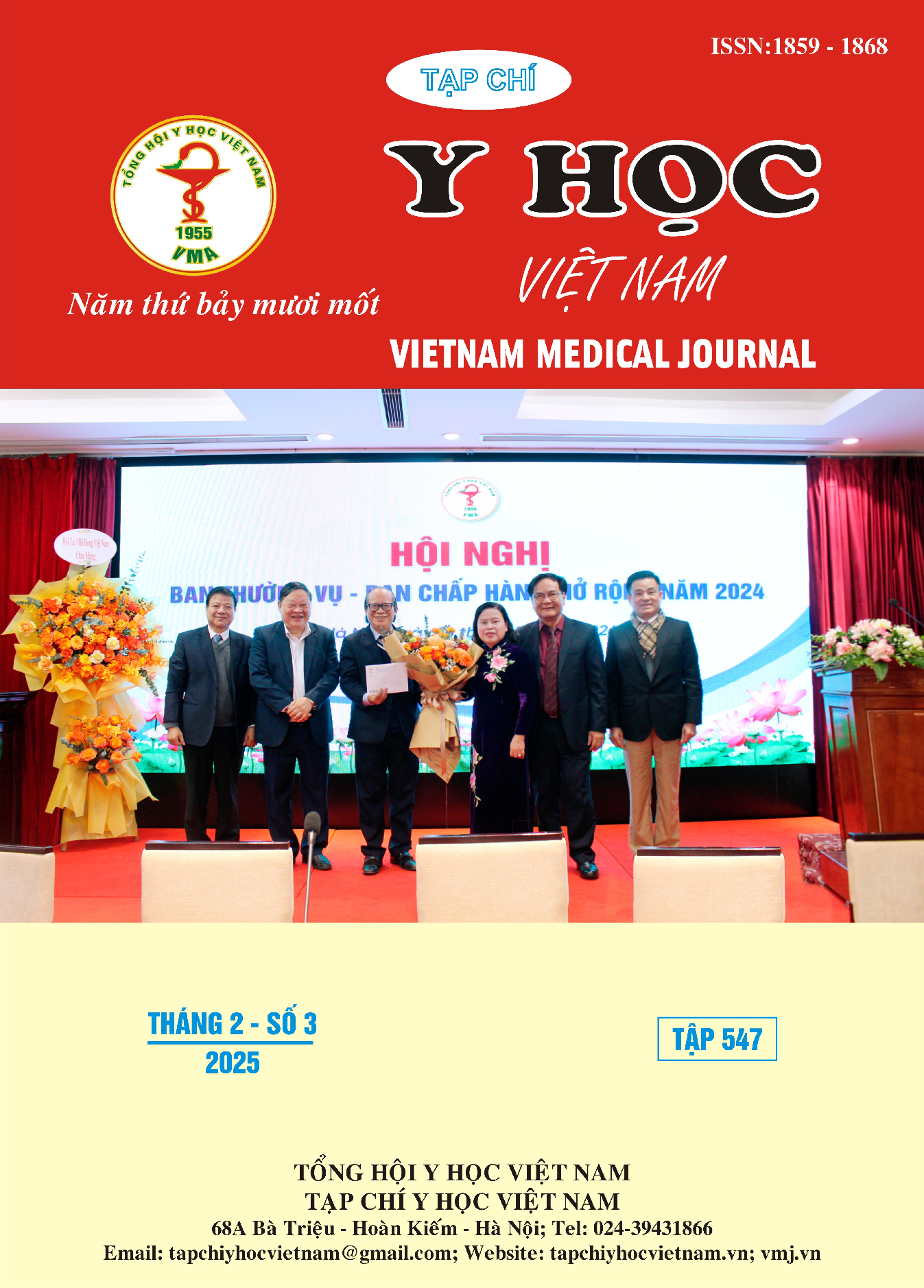KHẢO SÁT KIẾN THỨC PHÒNG BIẾN CHỨNG ĐÁI THÁO ĐƯỜNG Ở BỆNH NHÂN ĐÁI THÁO ĐƯỜNG TÍP 2 TẠI BỆNH VIỆN ĐA KHOA QUỐC TẾ S.I.S CẦN THƠ
Nội dung chính của bài viết
Tóm tắt
Đặt vấn đề: Điều trị đái tháo đường cần sự phối hợp liên tục và chặt chẻ giữa thầy thuốc, bệnh nhân và người nhà. Sự tuân thủ điều trị khi đã có đủ và đúng kiến thức về bệnh là chìa khoá của thành công. Mục tiêu nghiên cứu: Khảo sát kiến thức về phòng biến chứng đái tháo đường trên bệnh nhân đái tháo đường type 2. Đối tượng và phương pháp nghiên cứu: Mô tả cắt ngang trên 220 bệnh nhân được chẩn đoán đái tháo đường típ 2 tại bệnh viện Đa khoa Quốc tế S.I.S Cần Thơ từ 4/2023 đến 10/2023. Kết quả: Chỉ một tỉ lệ nhỏ (7,3%) bệnh nhân có kiến thức tốt về biến chứng của đái tháo đường, đa số bệnh nhân (51,8%) có kiến thức không đầy đủ về vấn đề này. Đối với kiến thức về hạ đường huyết, chỉ 18,2% bệnh nhân có kiến thức tốt. bệnh nhân có kiến thức tốt về tuân thủ dùng thuốc chiếm tỉ lệ cao 77,7%.52,3% bệnh nhân có kiến thức tốt về các nguyên tắc dinh dưỡng và đa số bệnh nhân có kiến thức trung bình (60%) về tập thể dục liên quan đái tháo đường. Kết luận: Kiến thức về phòng biến chứng đái tháo đường ở bệnh nhân đái tháo đường típ 2 chưa cao. Kiến thức chung về tuân thủ dùng thuốc có phần tốt hơn.
Chi tiết bài viết
Tài liệu tham khảo
2. Đoàn Thị Hồng Thủy, Ngô Huy Hoàng (2019), “Thay đổi kiến thức tuân thủ điều trị của người bệnh đái tháo đường type 2 ngoại trú tại Bệnh viện Nội tiết tỉnh Sơn La”, Tạp chí Khoa học Điều Dưỡng, 2 (3), tr. 42-54.
3. Phạm Thị Hoàng Yến, Đỗ Thị Hạnh (2022), “Kiến thức, thực hành tuân thủ điều trị ở người bệnh đái tháo đường type 2 điều trị ngoại trú tại khoa Nội thận – Nội tiết Bệnh viện Đa khoa tỉnh Nam Định năm 2022”, Tạp chí Y học Việt Nam, 527 (1), tr.133-136.
4. American Diabetes Association Professional Practice Committee (2022), “Classification and Diagnosis of Diabetes: Standards of Medical Care in Diabetes”, Diabetes Care 1, 45 (Supplement_1), p.17-38.
5. Culig, J. and M.J.C.a. Leppée (2014), “From Morisky to Hill-bone: self-reports scales for measuring adherence to medication”, Coll Antropol, 38(1), p. 55-62.
6. Franz M., Bantle J.P. et al (2002), “Evidence - based Nutrition principles and recommendations for the treatment and prevention of diabetes and related complications”, Diabetes care, 25 (1), p.148- 198.7
7. Ng SH, Chan KH, Lian ZY, Chuah YH, Waseem AN, Kadirvelu A (2012), “Reality vs. Illusion: Knowledge, attitude and practice among diabetic patients”, Int J Collaborat Res Internal Med Public Health, 4 (5), p. 723-732.
8. Speight J & Bradley C (2001) The ADKnowl: Identifying knowledge deficits in diabetes care. Diabetic Medicine, 18 (8), p. 626-633.


